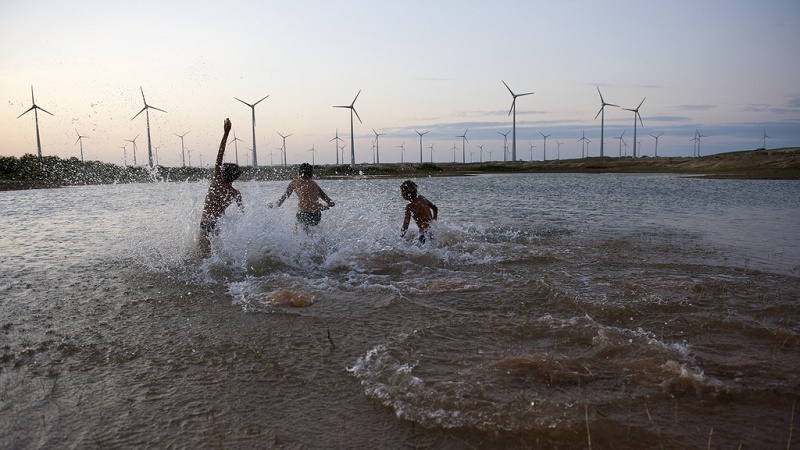Brazil gets three quarters of its electricity from hydropower and was expected to build another 18 dams worth 14.6GW by 2023.
Warnings about harmful impacts on the environment and communities, particularly of projects on Tapajós River, have largely been overruled in the drive for low carbon energy.
That could all change under new environment minister José Sarney Filho, the first voice in the administration to take those concerns seriously – and offer solutions.
On taking the leadership, Sarney Filho announced his breakthrough intention to replace investments in new hydro dams, including the controversial Tapajos complex, with a more robust and diverse energy mix.
The planned 8GW São Luiz do Tapajós hydropower dam, which was put on hold earlier this year, is “expendable” according to Sarney. He is looking for alternatives to propose to acting president Michel Temer, especially in wind generation.
Weekly briefing: Sign up for your essential climate politics update
Civil society has long been warning of human rights violations related to mega dams in Brazil, especially in the Amazon.
Their objections have delayed but not stopped projects like Belo Monte, set to be the second largest dam in the country when finished.
Studies also show that global warming is likely to reduce the flow of water through these dams, raising questions about their reliability.
Now developers face a different challenge: “Operation Car Wash”. Investigations that led to the breakdown of government and impeachment of president Dilma Rousseff have identified widespread corruption in the energy sector.
Starting in Petrobrás, the national oil giant, the scheme appears to have spread from fossil to nuclear power and includes the major hydro dam constructions as well.
Report: Brazil faces human rights probe over Amazon hydropower dam
Hydropower projects, which received the bulk of public energy investments during the governments of Luiz Inácio Lula da Silva and Rousseff, are in the spotlight.
Many of those implicated have supplied evidence of bribery in plea bargains to avoid harsh penalties themselves.
The former president of Andrade Gutierrez, one of the largest construction companies in the country, revealed an agreement to pay 150 million reals (US$46m), or 1% of the total contract of Belo Monte dam construction.
The money was funneled to political parties through various channels, including transfers between secret offshore companies and donations by contractors to election campaigns.
As the government cracks down on corruption, there is an opportunity to reshape Brazil’s energy policy.
Report: After Rousseff, Brazil prepares to roll back green laws
Lobbyists from coal-producing states in the south are pushing for new thermal plants to fill the gap. They argue it is needed to provide baseload power for industry.
Sarney has a greener vision. If he can convince his colleagues, it will allow Brazil to meet or exceed its climate targets submitted to the UN.
The country aims to get 45% of its energy from renewables by 2030, including 28-33% from non-hydro sources. With the right infrastructure, that looks entirely achievable.
In particular, wind energy is booming, despite economic recession. It was the fastest growing source of electricity in 2015, attracting US$5 billion of investment.
According to the Brazilian Wind Atlas, Brazil could generate up to 300GW of wind power, of which just 10GW have been exploited so far.
Brazil has been a world champion of mega dam projects and Brazilian construction companies lead projects in other Latin American countries and Africa.
If the new minister holds steady, it can show the developing world a new way of doing clean energy that is more resilient and socially acceptable.
Natalie Unterstell is a former Brazilian climate negotiator and Louis Bacon Environmental Leadership fellow at the Harvard Kennedy School of Government
